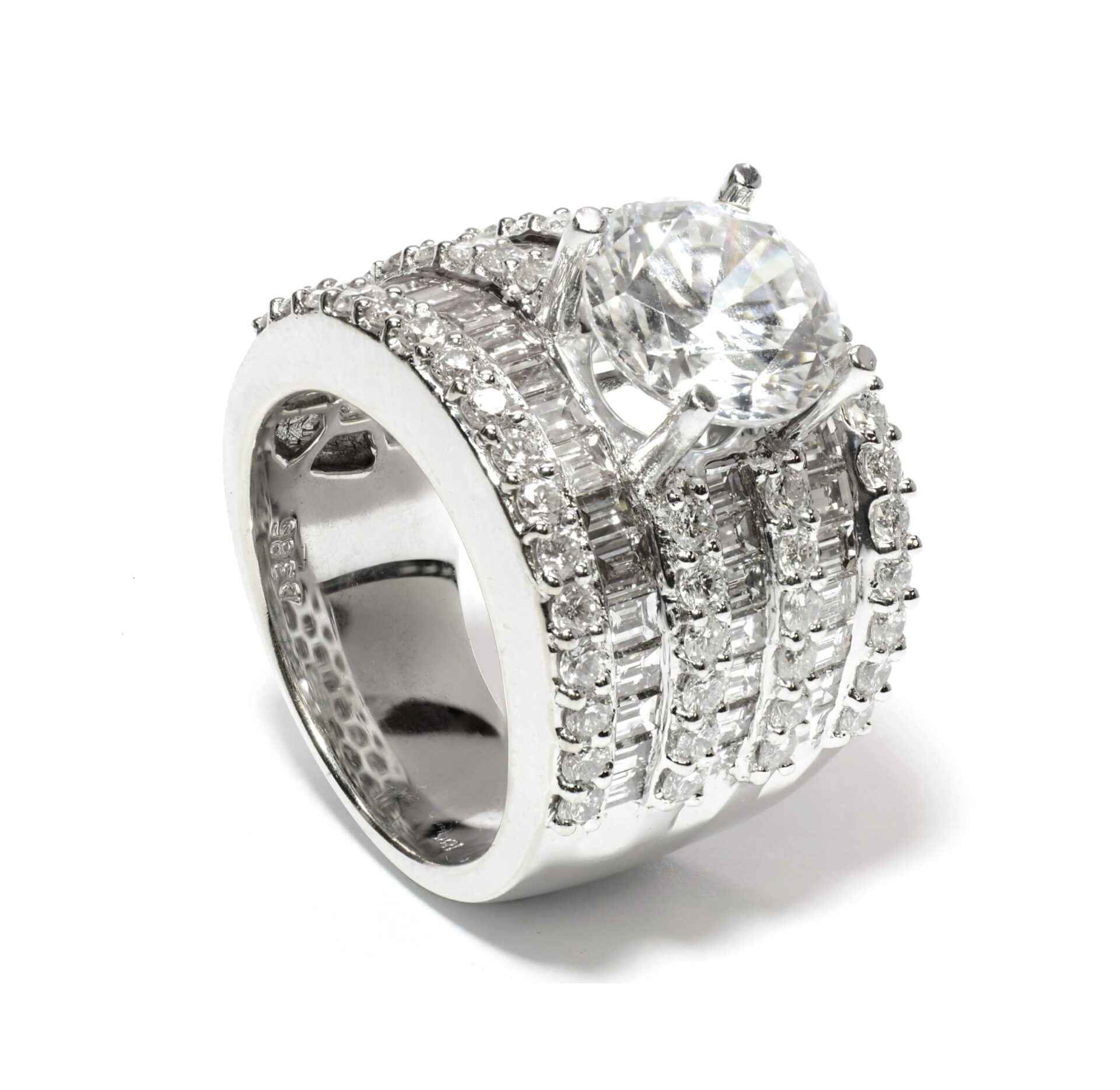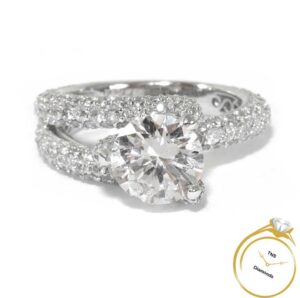There are many reasons and ways to clean your rings:
It is quite natural for people to develop a strong emotional attachment to their rings. The reason is that a ring is more than just a piece of jewelry. Most rings like wedding rings or engagement rings are reminders of a passionate love between two souls. This is why people tend to wear them on their fingers for as long as possible. It is a constant reminder of their beloved ones.
However, wearing rings all the time, whether it’s to be reminded of love or just to show off your diamond to friends and colleagues, has its downsides. While you are preparing for your day, exercising, or cooking in the kitchen, residues of lotions, makeup, hairspray, cooking oil, sweat, etc. accumulate on your ring. After some time, a thin layer of germs will form, which not only makes it look dirty and dull but is also bad for your health and can cause skin irritation. Therefore, you should try to keep your rings shiny, sparkling, and spotlessly clean at all times for the sake of beauty and your health.
By reading this article, you will learn how to clean your rings easily and effortlessly at home, you will master cleaning all different types of rings, and you may be able to hold the title of “Lord of the Rings” for the rest of your life.
How Often You Should Clean Your Rings
How often you need to clean your rings depends on how long you wear them every day. If you are one of those people who are attached to their rings and cannot part with them even for a short time, you need to clean your rings once or twice a week. If you use your rings less frequently, you will need to clean them less often: maybe once every two weeks or once a month.
Remember that you should have your rings cleaned not only at home but also once a year by a professional. We do not recommend having your rings professionally cleaned more often than once a year, as some equipment like ultrasonic cleaners can damage your rings if used too often.
Choose Your Cleaning Method
You should choose your cleaning method based on the type of metal and gemstone of your rings. Your ring is probably gold, platinum, or silver. You should choose a safe cleaning method to ensure that it doesn’t scratch or harm the metal band of your ring. You also need to pay attention to the gemstone of your ring, whether it’s a diamond or a pearl, you need to make sure that it won’t get damaged by the cleaning method you choose.
Here we’ll introduce you to two widely-used cleaning methods. The first is suitable for rings made of all metals and with all gemstones, while the second is used specifically for silver rings, as they’re more prone to dark discoloration due to tarnishing.
Method 1: All Types of Metals
This method is very simple and can be done by anyone at home. All you need is a bowl, a soft toothbrush, hot water, dishwashing liquid or soap, a piece of cotton cloth, and a hair dryer.
First, put some dishwashing liquid in a bowl. Then add some hot water, and if possible, use distilled water. After that, put your ring in the solution and let it soak for 20 to 40 minutes, depending on how dirty it’s. The next step is to gently scrub over the entire ring with your toothbrush, preferably a baby toothbrush because it’s much softer, don’t forget the back of the gemstone. Be very careful during this step so that no gemstone pieces come loose. Then rinse your ring under running water. Don’t forget to close the sink drain plug, because you don’t want to risk losing your expensive ring in the sink. As a final step, pat the ring dry with a lint-free cloth and blow-dry it with a hair dryer.
This method is by far the best and safest method to clean your rings properly and makes them “shine bright like a diamond.”
Method 2: Silver-Only
You should never use this method to clean your gold or platinum rings, as the baking soda used in the process can irreversibly damage them.
This method is used to remove the tarnish layer from your silver ring and make it shine and sparkle again as if it were a brand-new ring. You’ll need baking soda, aluminum foil, a bowl, and boiling water.
First, take a piece of aluminum foil big enough to fit on the bottom of the bowl and stick it on the bottom of the bowl. After that, add a tablespoon of baking soda to the bowl. Then pour in some boiling water. Now place your silver ring in the solution and let it soak for a few minutes. Finally, take out your ring and dry it with a soft cotton cloth. Voila! You’ll be surprised to see the striking difference.
Caring for Your Rings
Just cleaning your rings regularly is not enough. If you truly care about your rings, there are other things you should do to keep them intact. There are certain times that we strongly suggest you remove your ring:
Before Cleaning the House
The harsh chemicals used in house cleanings such as bleach, acetone, and other strong detergents can permanently damage your ring. So either remove your ring before handling these chemicals or wear gloves.
Before Exercising
Some sports and exercises can cause the band to deform or even the gemstone to loosen. Also, your hands sweat when you exercise, which causes some metals to discolor. It’s best to put your ring in its box securely before going to the gym.
Before Taking a Shower
It’s preferred that you remove your ring before showering or bathing, but some people still prefer not to. The chlorine and other chemicals in the water can cause your ring to become tarnished and discolored. So try to avoid contact with water as much as possible.
Conclusion
After reading this article, hopefully, you’ll be able to clean your rings at home. However, that doesn’t mean you don’t need to take your ring to a reliable jeweler to have it professionally cleaned. Depending on the piece of jewelry, your jeweler will use the best method. If your jeweler isn’t knowledgeable, you could end up with a damaged ring. Some of these cleaning methods can damage your ring if not used properly.
If you need further help in cleaning your rings properly and professionally, you can contact our team of experts at TNS Diamonds and get the best advice that suits your jewelry.




